
Al Jubail: Saudi Arabia’s Coastal Gem
Al Jubail is a blend of modernity and natural beauty. Located on the Arabian Gulf, it is known for its stunning beaches and industrial might. As a major player in the global petrochemical industry, the city offers a unique juxtaposition of industrial landscapes and serene coastal views. Visitors can start their journey exploring the Al Nakheel Beach, where the turquoise waters and white sands create a perfect backdrop for relaxation. The beach is well-equipped with amenities, making it family-friendly and ideal for water sports enthusiasts. For a touch of local culture, the Al Fanateer Beach is a must-visit, offering picturesque views and a relaxed atmosphere. Al Jubail is also home to the beautiful Jubail Mangrove Park, a haven for bird watchers and nature lovers. The park’s boardwalks allow visitors to explore the mangroves and observe the rich biodiversity. The city’s waterfront promenade is perfect for leisurely evening strolls, offering spectacular views of the sunset over the gulf. For those interested in history and culture, the Jubail Church ruins provide a glimpse into the ancient past of this region. The ruins date back to the 4th century AD and highlight the area’s historical significance. The city’s bustling markets and shopping centers, such as the Galleria Mall, offer a mix of traditional and contemporary experiences, providing a perfect end to a day of exploration.
Local tips in Al Jubail
- Visit Al Nakheel Beach early in the morning to avoid crowds and enjoy a peaceful swim.
- Pack sun protection as the Arabian Gulf’s sun can be very strong, especially during the summer months.
- Bring binoculars to Jubail Mangrove Park for a better view of the diverse bird species.
- Try local seafood at one of the many restaurants along the Al Fanateer Beach area.
- Respect local customs and dress modestly, especially in public areas and religious sites.
Al Jubail: Saudi Arabia’s Coastal Gem
Al Jubail is a blend of modernity and natural beauty. Located on the Arabian Gulf, it is known for its stunning beaches and industrial might. As a major player in the global petrochemical industry, the city offers a unique juxtaposition of industrial landscapes and serene coastal views. Visitors can start their journey exploring the Al Nakheel Beach, where the turquoise waters and white sands create a perfect backdrop for relaxation. The beach is well-equipped with amenities, making it family-friendly and ideal for water sports enthusiasts. For a touch of local culture, the Al Fanateer Beach is a must-visit, offering picturesque views and a relaxed atmosphere. Al Jubail is also home to the beautiful Jubail Mangrove Park, a haven for bird watchers and nature lovers. The park’s boardwalks allow visitors to explore the mangroves and observe the rich biodiversity. The city’s waterfront promenade is perfect for leisurely evening strolls, offering spectacular views of the sunset over the gulf. For those interested in history and culture, the Jubail Church ruins provide a glimpse into the ancient past of this region. The ruins date back to the 4th century AD and highlight the area’s historical significance. The city’s bustling markets and shopping centers, such as the Galleria Mall, offer a mix of traditional and contemporary experiences, providing a perfect end to a day of exploration.
When is the best time to go to Al Jubail?
Iconic landmarks you can’t miss
Corniche Fanateer
Experience the beauty of Corniche Fanateer, a stunning city park in Al Jubail with lush greenery, scenic waterfront views, and delicious international dining options.
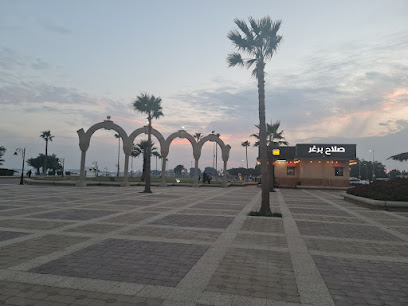
Al Nakheel Beach
Explore Al Nakheel Beach in Al Jubail, a stunning park offering beautiful views of the Arabian Gulf, perfect for relaxation and fun activities.
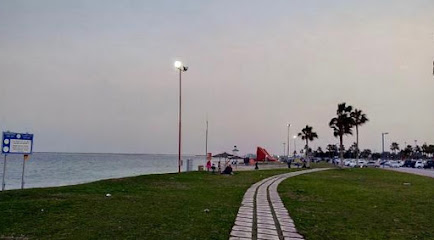
Galleria Mall
Discover Galleria Mall in Al Jubail: An ultimate shopping haven with top brands, delicious dining, and family-friendly entertainment for all ages.
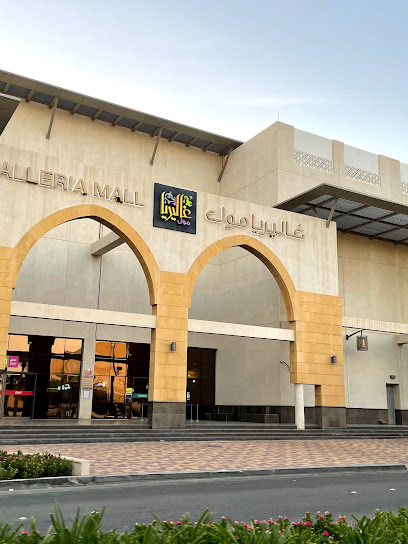
Deffi Park
Explore the natural beauty and vibrant activities at Deffi Park, a serene oasis in Al Jubail, perfect for relaxation and family fun.
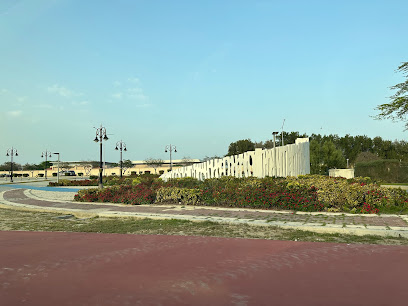
Al Huwailat Center
Explore Al Huwailat Center in Al Jubail for a unique shopping experience with diverse dining and entertainment options, perfect for every traveler.
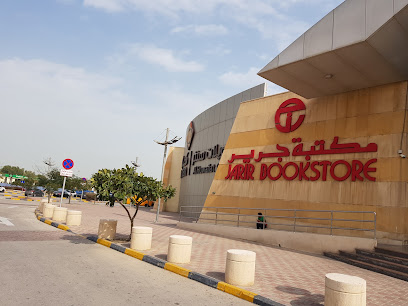
Corniche Jubail
Explore the beauty of Corniche Jubail, a picturesque waterfront park perfect for relaxation, family fun, and unforgettable sunset views.
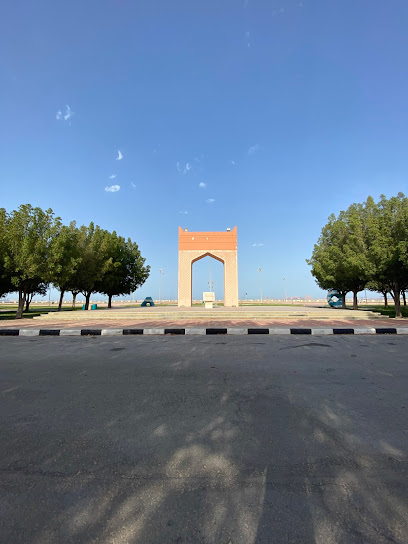
InterContinental Al Jubail Resort
Experience unparalleled luxury and stunning views at the InterContinental Al Jubail Resort, your gateway to the Arabian Gulf's beauty and charm.
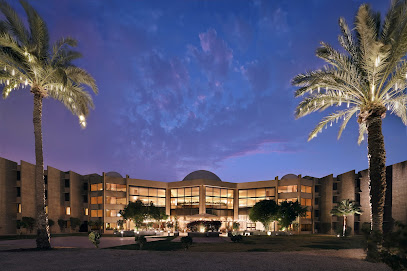
Dareen Beach
Explore the serene beauty of Dareen Beach in Al Jubail, a perfect destination for relaxation, water sports, and stunning sunsets by the Arabian Gulf.
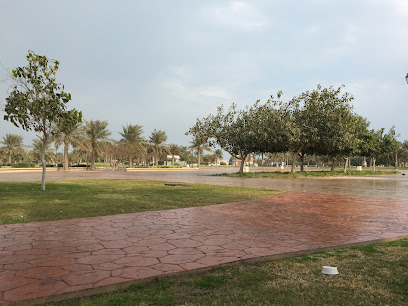
Jubail Marine Area
Explore the breathtaking Jubail Marine Area, a nature preserve showcasing stunning coastal ecosystems and vibrant marine life along the Arabian Gulf.
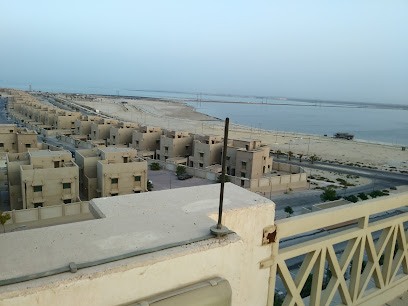
Andalus Park
Experience the tranquility and beauty of Andalus Park in Al Jubail, a perfect retreat for nature lovers and families alike.
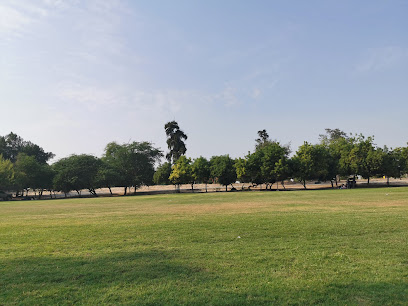
Fanateer Beach Jubail
Explore the beauty of Fanateer Beach in Jubail, where golden sands meet the turquoise waters of the Arabian Gulf for a perfect getaway.
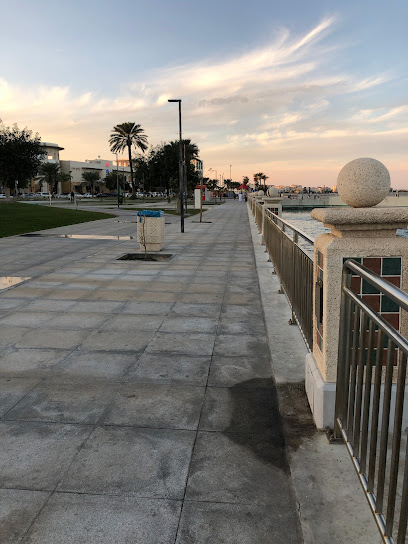
Aqua Park
Experience the thrill of water adventures at Aqua Park in Al Jubail, where fun and relaxation meet for an unforgettable day.
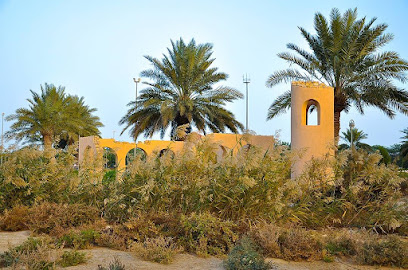
Banana Beach
Explore Banana Beach in Al Jubail, a stunning coastal gem perfect for relaxation, water sports, and vibrant local culture.
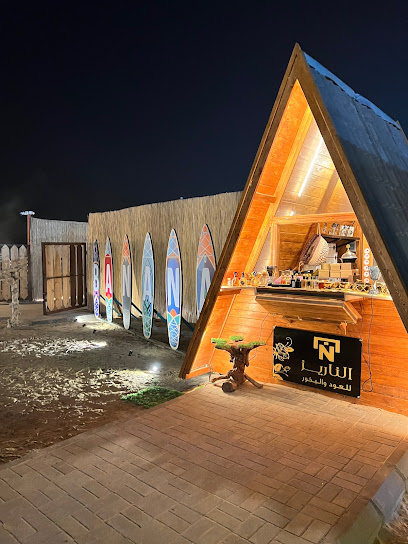
Young Marine Park
Explore Young Marine Park in Al Jubail for a serene escape with stunning coastal views, lush greenery, and family-friendly activities, perfect for all nature lovers.
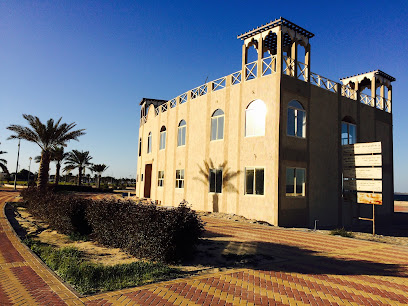
Peace Park
Discover the tranquility of Peace Park in Al Jubail, a lush garden oasis perfect for relaxation, family outings, and nature appreciation.
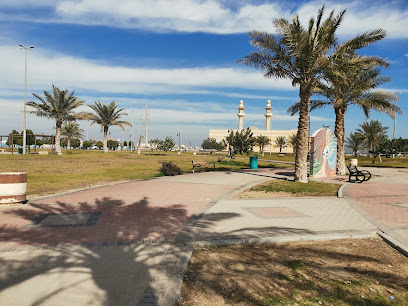
Unmissable attractions to see
Corniche Fanateer
Experience the beauty and tranquility of Corniche Fanateer in Al Jubail, a perfect city park for relaxation, recreation, and unforgettable family moments.
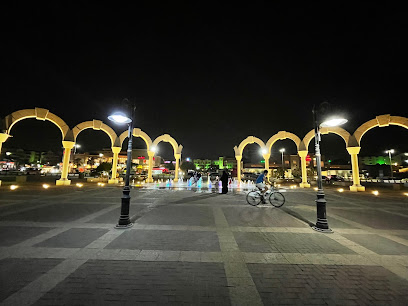
Al Nakheel Beach
Discover the serene beauty of Al Nakheel Beach in Al Jubail, a perfect destination for relaxation, family fun, and unforgettable coastal experiences.
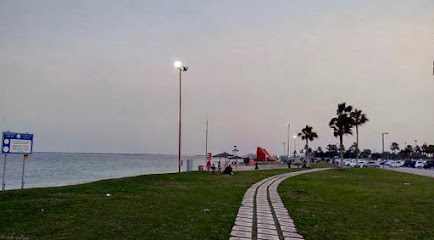
Deffi Park
Experience the beauty of nature at Deffi Park, a serene urban oasis in Al Jubail perfect for relaxation, picnics, and family fun.
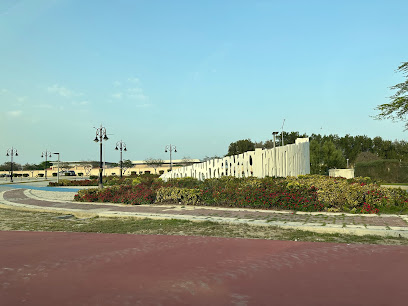
Corniche Jubail
Experience the serene beauty and vibrant atmosphere of Corniche Jubail, a premier waterfront destination in Al Jubail, Saudi Arabia.
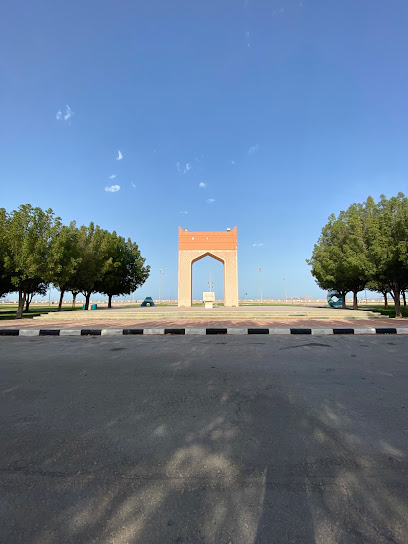
Jubail Marine Area
Explore the breathtaking Jubail Marine Area, a sanctuary of nature, diverse marine life, and stunning coastal landscapes in Saudi Arabia.
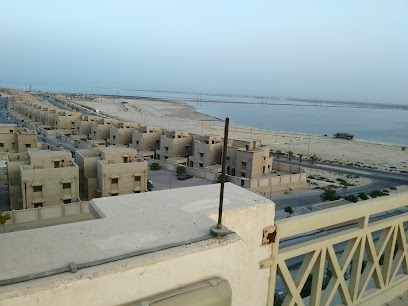
Andalus Park
Discover the beauty of Andalus Park in Al Jubail, a lush oasis perfect for relaxation, recreation, and family fun amidst vibrant greenery and stunning landscapes.
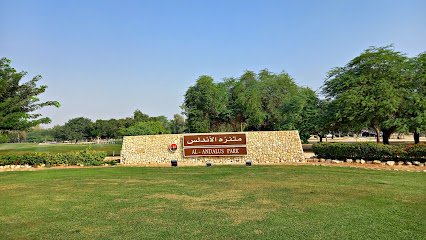
Fanateer Beach Jubail
Explore Fanateer Beach in Jubail for a perfect blend of sun-soaked relaxation and thrilling water activities in a stunning coastal setting.
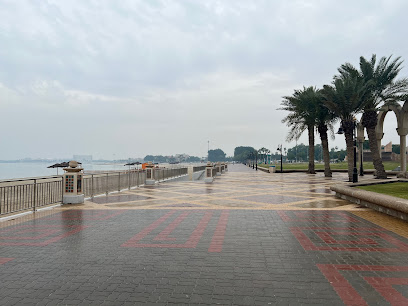
Aqua Park
Discover the thrilling Aqua Park in Al Jubail, where water adventures await for families and thrill-seekers alike amidst lush scenery.
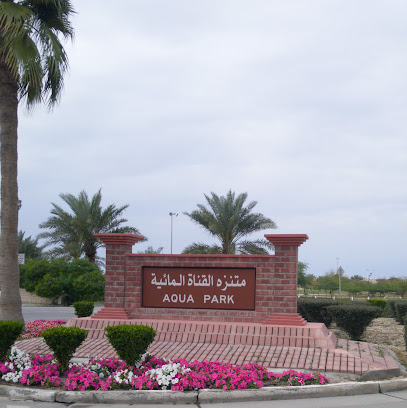
Young Marine Park
Experience the tranquility of Young Marine Park in Al Jubail, a serene destination for relaxation, recreation, and stunning views of the Arabian Gulf.
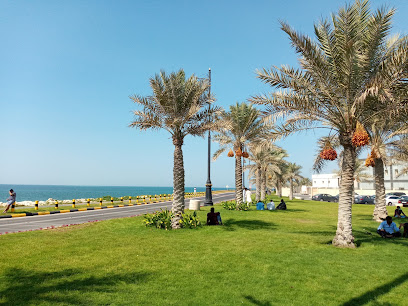
Darien Hills Park
Explore the natural beauty of Darien Hills Park in Jubail, a peaceful haven for families and nature lovers alike, offering relaxation and outdoor fun.
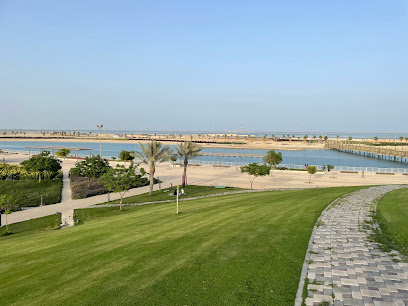
Ty’bah park
Experience the serene beauty of Ty'bah Park, a lush garden oasis in Al Jubail perfect for relaxation and family outings.
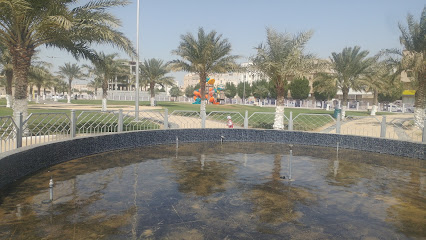
Peace Park
Explore the tranquil beauty of Peace Park in Al Jubail, a perfect blend of gardens, sculptures, and serene landscapes for all visitors.
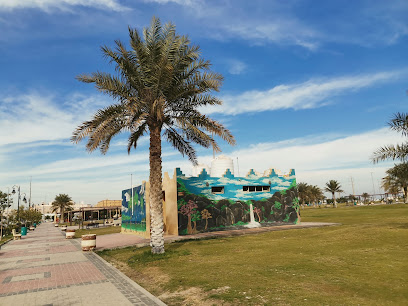
Al-Buainain Park
Discover the lush landscapes and family-friendly attractions at Al-Buainain Park in Al Jubail, a perfect getaway for relaxation and fun.
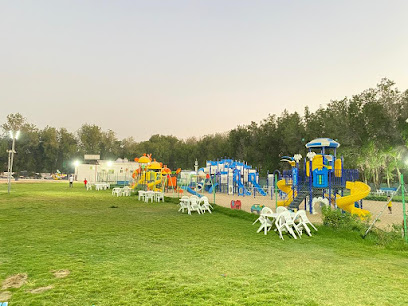
Jalmudah Park, Jalmudah, Jubail
Explore the serene beauty of Jalmudah Park in Jubail, a perfect escape for relaxation, picnics, and leisurely walks amidst lush greenery.
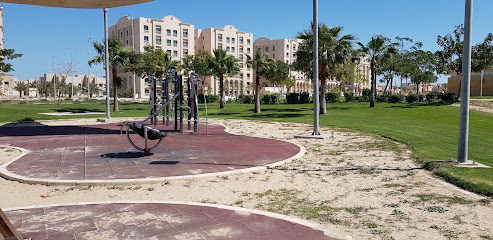
Dareen Hill View Point
Discover the breathtaking views and serene atmosphere at Dareen Hill View Point in Al Jubail, a perfect escape for nature lovers and photographers.
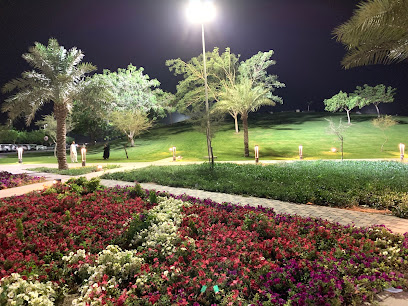
Essential places to dine
Steak House
Experience the best steaks in Al Jubail at Steak House - where quality meets flavor in an inviting atmosphere.
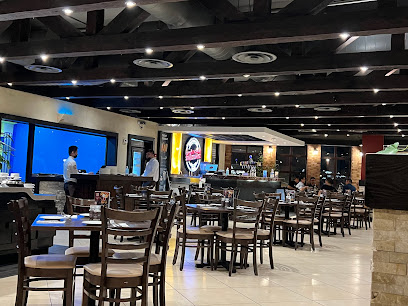
PULI Contemporary Multi Cuisine - Al Jubail مطعم بيلي الجبيل – هندي . مشوي . صيني
Experience the vibrant fusion of Indian, Chinese, and Asian cuisines at PULI Contemporary Multi Cuisine in Al Jubail.
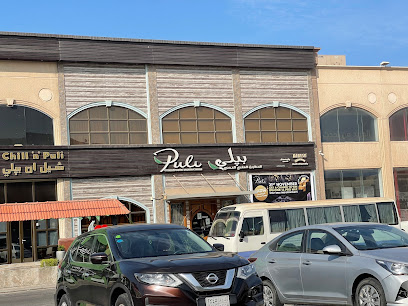
Rummaan Hyderabadi Restaurant
Discover the authentic flavors of India at Rummaan Hyderabadi Restaurant, where traditional recipes meet modern hospitality in Jubail City Center.
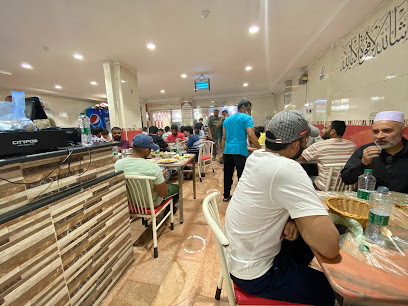
قلعة الأرز
Experience authentic Saudi Arabian cuisine at قلعة الأرز in Al Jubail – where tradition meets flavor in every dish.
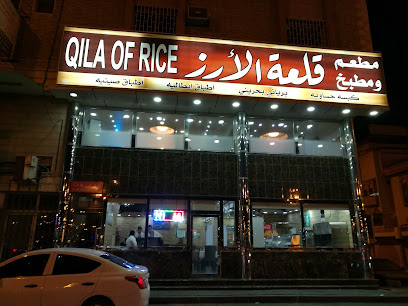
Qila Of Rice
Savor the authentic flavors of Saudi Arabia at Qila Of Rice, where delicious meals meet affordability in Al Jubail.
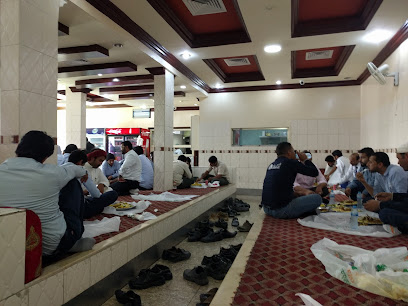
Applebee’s
Savor authentic American flavors at Applebee's in Al Jubail – where comfort food meets vibrant ambiance.
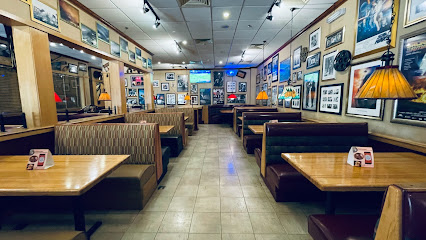
Outback Steak house
Experience authentic American cuisine at Outback Steakhouse in Al Jubail, where delicious flavors meet a welcoming atmosphere.
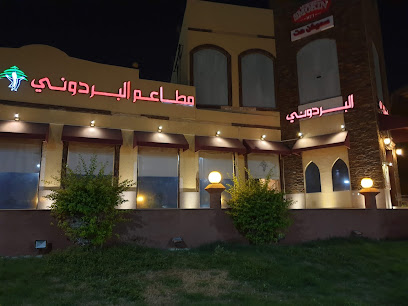
مطعم رويال مليبار - الجبيل Royal Malabar Restaurant - Jubail
Savor authentic Indian cuisine at Royal Malabar Restaurant in Jubail - A culinary journey through spices and flavors awaits you.
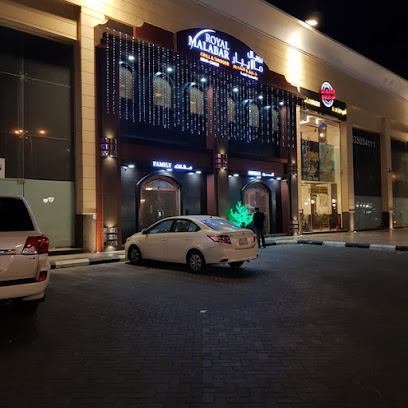
Brasa De Brazil Jubail
Experience the best of Brazilian barbecue at Brasa De Brazil in Jubail – a culinary journey filled with flavor and tradition.
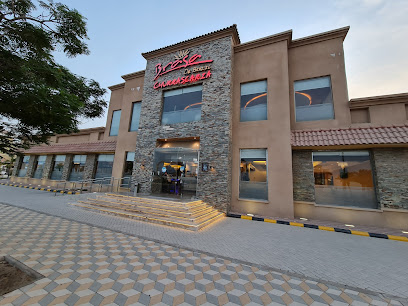
Delhi 6 Restaurant
Experience the rich flavors of Indian cuisine at Delhi 6 Restaurant in Al Jubail – where every meal tells a story.
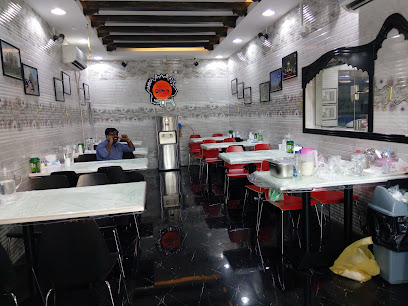
Cookxon Restaurant
Experience authentic Indian cuisine at Cookxon Restaurant in Jubail City Center, where tradition meets taste in every dish.
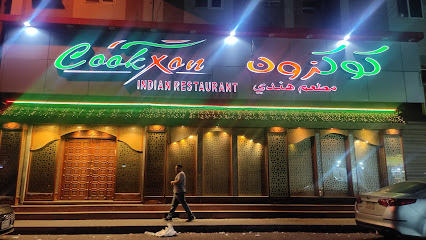
East and West Restaurant
Experience authentic Pakistani cuisine at East and West Restaurant in Jubail City Center – a culinary journey filled with rich flavors.
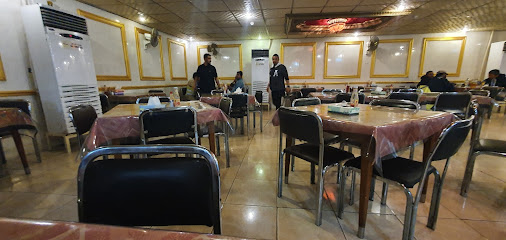
Red Ginger Restaurant
Discover exquisite Asian flavors at Red Ginger Restaurant in Al Jubail—an unforgettable culinary destination for tourists.
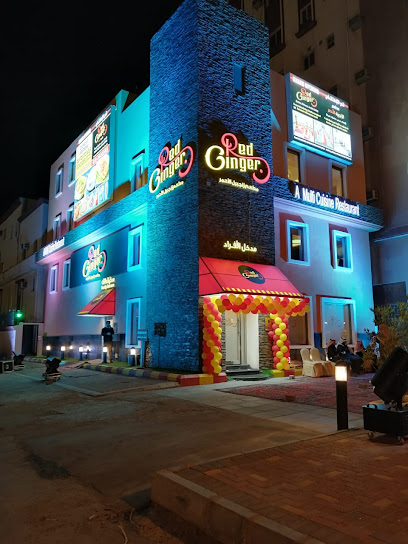
Taya Restaurant
Experience authentic Middle Eastern cuisine at Taya Restaurant in Al Jubail – where every meal is a celebration of flavor and hospitality.
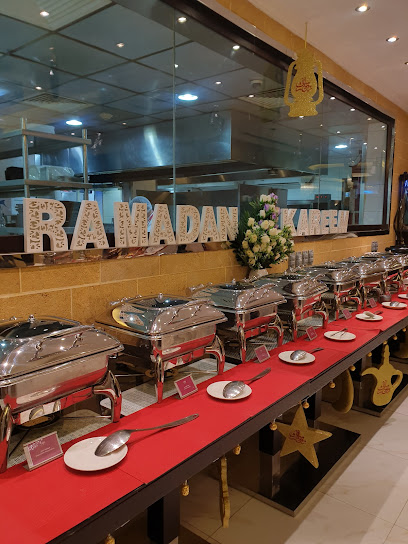
Rice & Spice Restaurant
Experience the rich flavors of India at Rice & Spice Restaurant in Al Jubail – a delightful culinary adventure awaits you.
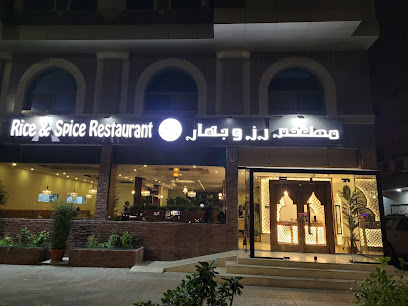
Markets, malls and hidden boutiques
LuLu Hypermarket - Jubail
Discover the vibrant shopping experience at LuLu Hypermarket in Jubail, where local flavors meet international brands.
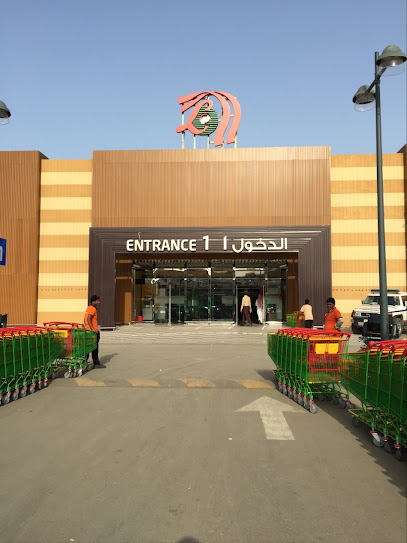
Al Nakheel Beach
Experience the beauty of Al Nakheel Beach, a stunning coastal park in Al Jubail, Saudi Arabia, perfect for relaxation and family-friendly adventures.
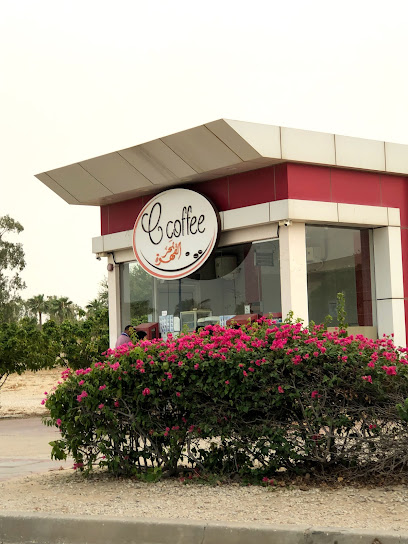
Jubail Center Qmc office
Experience the best of shopping and dining at Jubail Center QMC Office, a vibrant hub for tourists seeking retail therapy and culinary delights in Al Jubail.
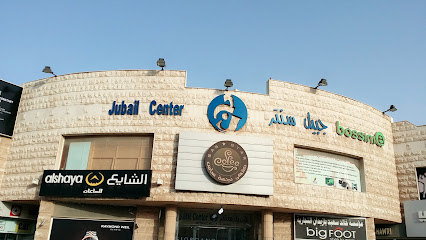
Galleria Mall
Discover Galleria Mall in Al Jubail, a vibrant shopping destination offering diverse brands, delicious dining, and family-friendly entertainment for all visitors.
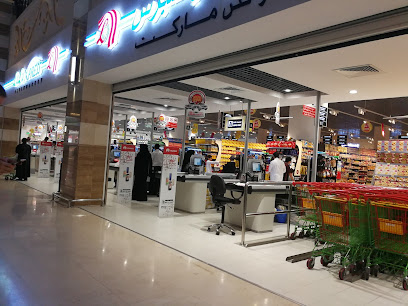
Cenomi Al Jubail Mall
Explore the vibrant shopping experience at Cenomi Al Jubail Mall, offering diverse shops, delectable dining, and exciting entertainment.
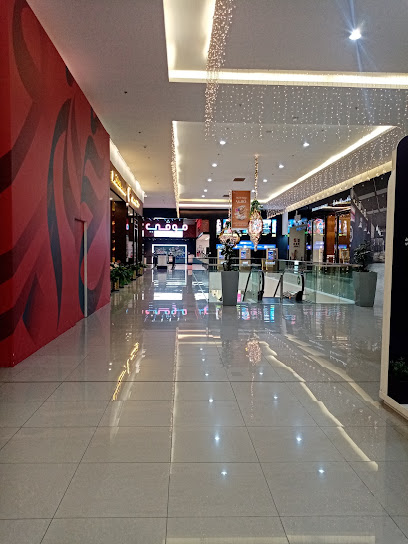
Al Huwailat Center
Discover Al Huwailat Center, the premier shopping mall in Al Jubail, offering a variety of stores, dining options, and entertainment for every visitor.
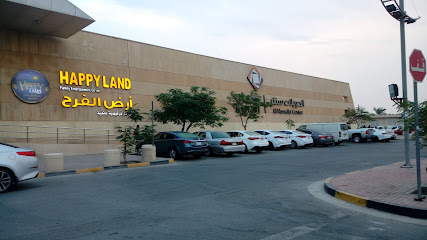
Big World Trading Est.
Explore the vast selections at Big World Trading Est. in Al Jubail, where shopping meets adventure in a vibrant atmosphere.
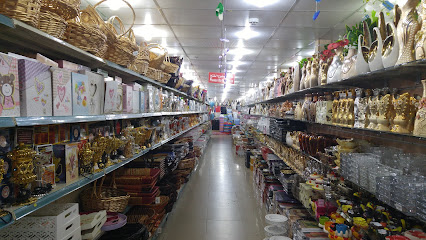
REDTAG
Explore REDTAG in Al Jubail for stylish clothing and home goods at great prices, perfect for fashion enthusiasts and savvy shoppers alike.
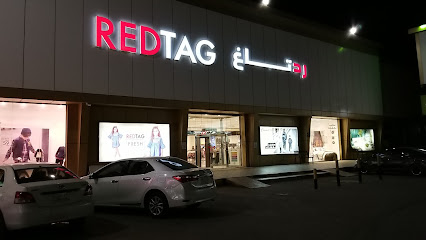
10 Riyal Shop
Explore the 10 Riyal Shop in Jubail City Center for unbeatable deals on a wide range of products, making shopping both fun and affordable.
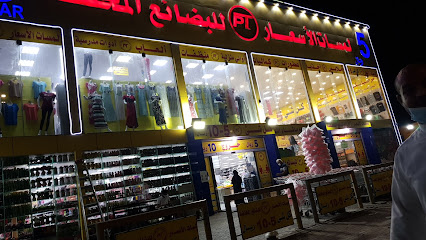
Home Centre
Discover stylish and affordable furniture at Home Centre in Al Jubail Plaza, your ultimate destination for home decor.
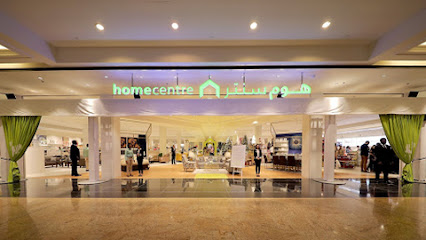
Alamazon
Explore Alamazon, Al Jubail's premier home goods store, offering a wide range of quality products to elevate your living space.
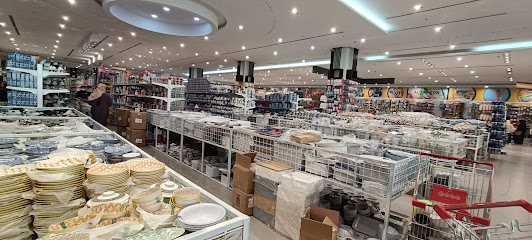
Malabar Gold and Diamonds - Lulu Hypermarket - Al Jubail
Explore the exquisite collections of Malabar Gold and Diamonds at Lulu Hypermarket, where timeless craftsmanship meets exceptional service in Al Jubail.
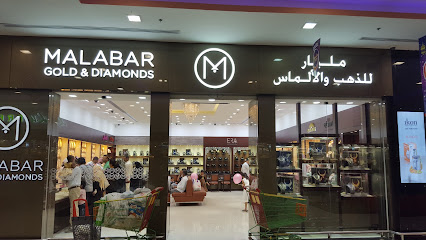
Jubail Ladies Market
Experience the bustling Jubail Ladies Market, a vibrant shopping destination for unique crafts, clothing, and local delicacies in Al Jubail.
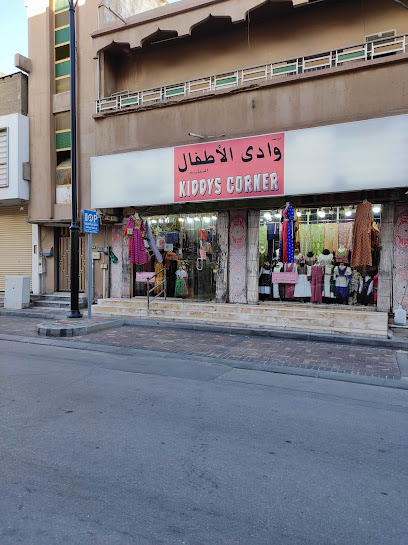
شيك بوليفارد
Explore Chic Boulevard in Al Jubail for exquisite floral designs, unique gifts, and delightful party supplies that create lasting memories.
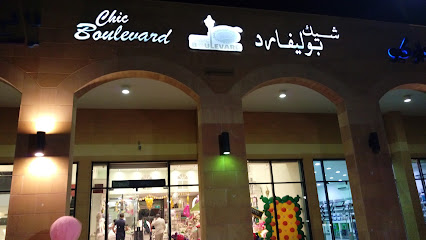
Jubail Tobacco تبغ الجبيل
Discover the finest tobacco and vaping products at Jubail Tobacco in Al Jubail, where quality meets expertise for every enthusiast.
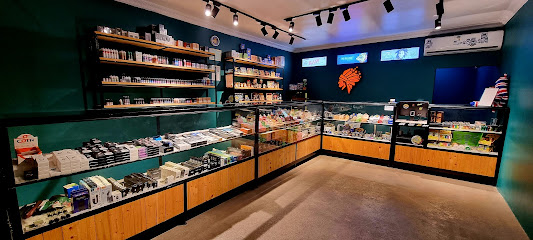
Essential bars & hidden hideouts
Al Nakheel Beach
Immerse yourself in the breathtaking beauty of Al Nakheel Beach, a tranquil getaway in Al Jubail, Saudi Arabia, for relaxation and adventure.
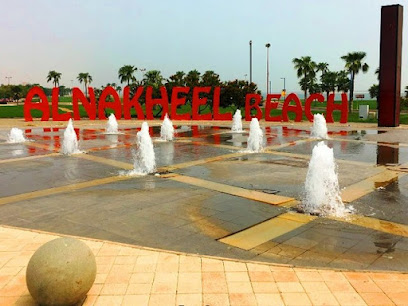
PULI Contemporary Multi Cuisine - Al Jubail مطعم بيلي الجبيل – هندي . مشوي . صيني
Discover the flavors of India and Asia at PULI Contemporary Multi Cuisine in Al Jubail, where every dish tells a story of tradition and innovation.
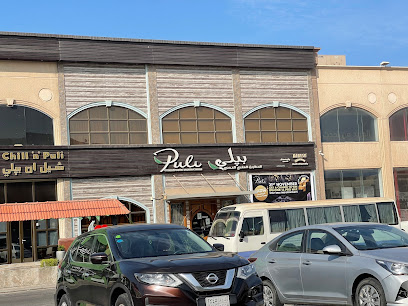
مطعم رويال مليبار - الجبيل Royal Malabar Restaurant - Jubail
Savor authentic Indian cuisine at Royal Malabar Restaurant in Jubail, where every meal is a delightful journey through rich flavors and warm hospitality.
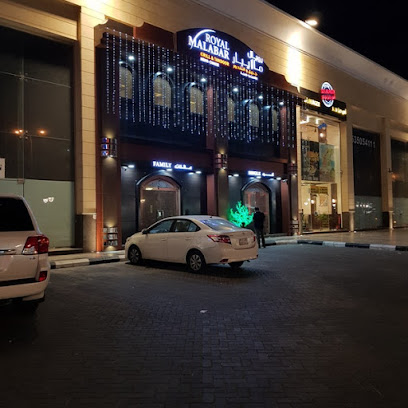
Brasa De Brazil Jubail
Experience authentic Brazilian barbecue at Brasa De Brazil Jubail, where succulent meats and a vibrant salad bar await.
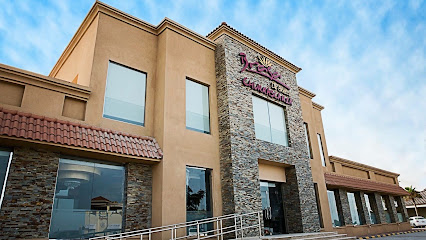
Warwick Al Jubail Hotel
Discover luxury and comfort at Warwick Al Jubail Hotel, your perfect retreat in Saudi Arabia's stunning Al Fanateer District.
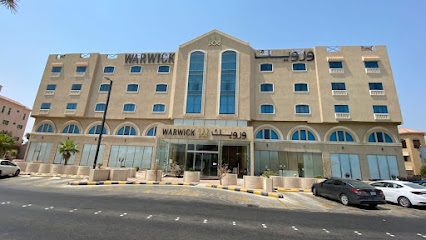
Red Ginger Restaurant
Experience the flavors of Asia at Red Ginger Restaurant in Al Jubail, where exquisite dishes and a welcoming atmosphere await every guest.
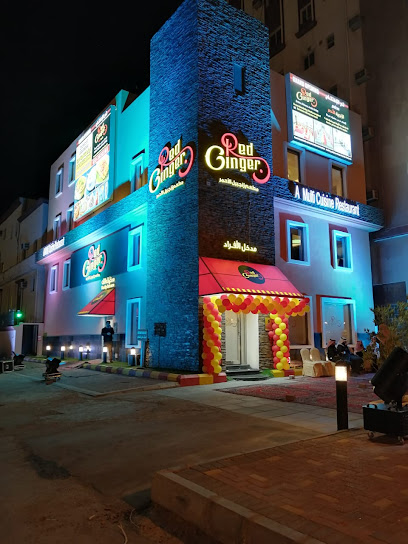
Porto Riviera Lounge
Discover the vibrant culinary scene at Porto Riviera Lounge in Al Jubail, a perfect blend of café, lounge, and event venue for every food lover.
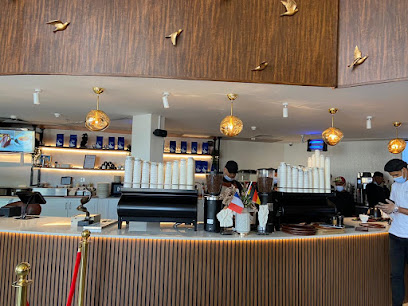
Josh Restaurant I مطعم جوش
Experience the best breakfast and brunch at Josh Restaurant in Al Jubail, where flavorful dishes and a vibrant atmosphere await every visitor.
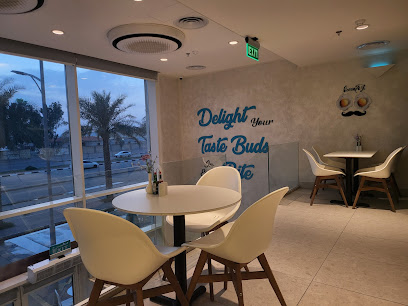
Fish market
Immerse yourself in the lively atmosphere of Jubail's Fish Market, where fresh seafood meets local culture, perfect for culinary enthusiasts.
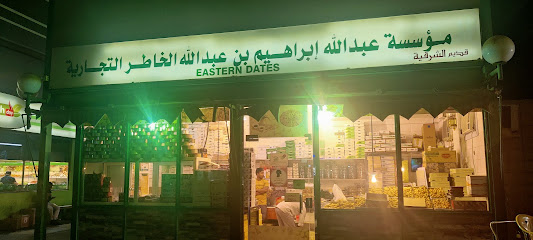
Tasty Fruity
Discover Tasty Fruity in Al Jubail for a unique fast food experience blending traditional flavors with refreshing fruity twists.
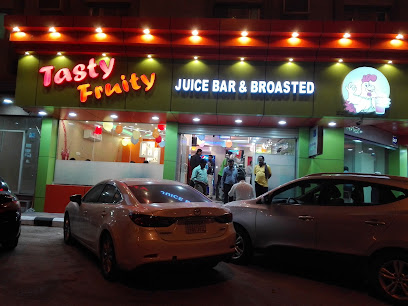
Baloch Hotel
Experience the authentic flavors of Al Jubail at Baloch Hotel, where local cuisine meets exceptional hospitality in a welcoming setting.
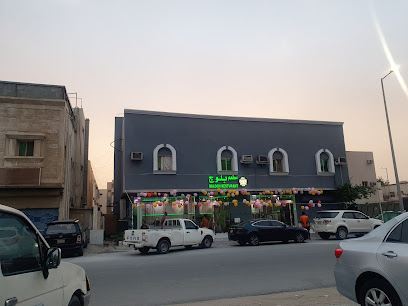
Samarkand Bukhari Restaurant
Experience the authentic flavors of Middle Eastern cuisine at Samarkand Bukhari Restaurant in Jubail City Center, where tradition meets taste.
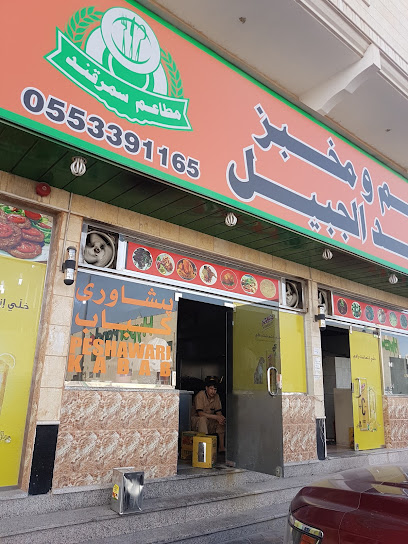
Jubail candle restaurant
Experience the delightful culinary journey at Candle Restaurant in Jubail, where local flavors meet international cuisine in a warm, inviting atmosphere.
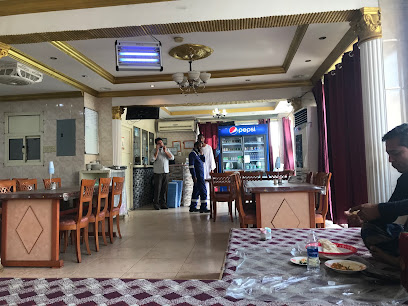
Three Bars
Experience the best of café culture and bakery delights at Three Bars in Al Jubail, a perfect destination for food enthusiasts.
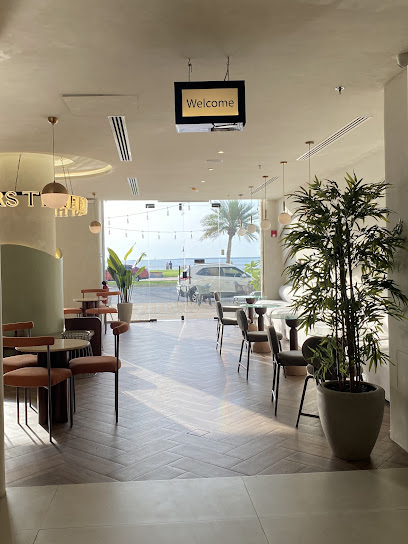
Local Phrases
-
- HelloMarhaba
[mar-ha-ba] - GoodbyeMa'a as-salama
[ma-a as-sa-la-ma] - YesNa'am
[na-am] - NoLa
[la] - Please/You're welcomeMin fadlik
[min fa-dlik] - Thank youShukran
[shuk-ran] - Excuse me/SorryAfuwan
[a-fu-wan] - How are you?Kaifa haluk?
[ka-i-fa ha-luk] - Fine. And you?Jayyid. Wa ant?
[jay-yid. wa ant] - Do you speak English?Hal tatakalam al-ingliziya?
[hal ta-ta-ka-lam al-ing-li-zi-ya] - I don't understandAna la afham
[a-na la af-ham]
- HelloMarhaba
-
- I'd like to see the menu, pleaseUriid an ara qaa-ima al-aghda, min fadlik
[u-riid an a-ra qa-a-i-ma al-a-gh-da, min fa-dlik] - I don't eat meatAna la aakol lahma
[a-na la a-a-kol la-hma] - Cheers!Sahtein
[sa-h-tain] - I would like to pay, pleaseUriid an adfa', min fadlik
[u-riid an ad-fa', min fa-dlik]
- I'd like to see the menu, pleaseUriid an ara qaa-ima al-aghda, min fadlik
-
- Help!Musaidah!
[mu-sai-dah] - Go away!Imshi!
[im-shi] - Call the Police!Idha' bilshurta!
[id-ha' bil-shur-ta] - Call a doctor!Idha' biltabib!
[id-ha' bil-ta-bib] - I'm lostAda'alt
[a-da-alt] - I'm illAna mareed
[a-na ma-reed]
- Help!Musaidah!
-
- I'd like to buy...Uriid an ashtari...
[u-riid an ash-ta-ri] - I'm just lookingAna faqat atabathath
[a-na fa-qat a-ta-ba-thath] - How much is it?Kam thamanuhu?
[kam tha-ma-nu-hu] - That's too expensiveHatha ghali jiddan
[ha-tha gha-li jid-dan] - Can you lower the price?Hal tastatiu tanzil althaman?
[hal tas-ta-ti-u tan-zil al-tha-man]
- I'd like to buy...Uriid an ashtari...
-
- What time is it?Kam alwaqt?
[kam al-waqt] - It's one o'clockHuwa alwaahid
[hu-wa al-waa-hid] - Half past (10)Nisf alaasharah
[nisf al-a-a-sha-rah] - MorningSabaah
[sa-baah] - AfternoonDuhur
[du-hur] - EveningMasaa
[ma-saa] - YesterdayAms
[ams] - TodayAl-yawm
[al-yawm] - TomorrowGhadan
[gha-dan] - 1Wahid
[wa-hid] - 2Ithnayn
[ith-na-yn] - 3Thalatha
[tha-la-tha] - 4Arbaa
[ar-baa] - 5Khamsa
[kham-sa] - 6Sitta
[sit-ta] - 7Sabaa
[sa-baa] - 8Thamania
[tha-ma-ni-a] - 9Tisaa
[ti-saa] - 10Ashara
[a-sha-ra]
- What time is it?Kam alwaqt?
-
- Where's a/the...?Ayna al...
[ay-na al...] - What's the address?Ma huwa al'adresse?
[ma hu-wa al-ad-res-se] - Can you show me (on the map)?Hal tastatiu an tuurini (alaa alkhariTah)?
[hal tas-ta-ti-u an tuu-ri-ni (a-laa al-kha-ri-ta)] - When's the next (bus)?Mata alqarib?
[ma-ta al-qa-rib] - A ticket (to ....)Taqiyyah (ila ....)
[ta-qiy-yah (i-la ....)]
- Where's a/the...?Ayna al...
History of Al Jubail
-
Al Jubail, located on the serene coast of the Arabian Gulf, has roots extending into ancient times. Archaeological evidence suggests that the area was a bustling hub of trade and commerce as early as the Bronze Age. Artifacts such as pottery, tools, and remnants of ancient structures point to a thriving settlement that played a significant role in the regional maritime trade.
-
During the third millennium BCE, Al Jubail was part of the Dilmun civilization, an important trading empire in the ancient Near East. Dilmun was renowned for its wealth, connecting Mesopotamia with the Indus Valley Civilization. The remains of this period, including burial mounds and trading artifacts, speak volumes about Al Jubail's historical significance.
-
With the advent of Islam in the 7th century CE, Al Jubail, like much of the Arabian Peninsula, embraced the new faith. The town became a modest but significant stop for traders and pilgrims making their way across the region. The influence of Islamic architecture and culture can still be felt in the old parts of the city.
-
In the 16th century, the Ottoman Empire extended its reach to the Arabian Peninsula, including Al Jubail. The Ottomans left their mark on the town through the construction of forts, administrative buildings, and the introduction of new administrative practices. Ottoman-era relics and architecture provide a glimpse into this transformative period.
-
The discovery of oil in the Arabian Peninsula in the 20th century transformed Al Jubail from a quiet fishing village to a burgeoning industrial city. The establishment of the Saudi Arabian Oil Company (Aramco) brought rapid modernization and economic growth. Oil refineries and petrochemical plants soon dotted the landscape, marking a new era of prosperity.
-
In the 1970s, the Saudi government embarked on an ambitious plan to develop Al Jubail into a major industrial hub. Jubail Industrial City was established, featuring world-class infrastructure, industrial complexes, and residential areas. It became one of the largest civil engineering projects in the world, attracting skilled workers and professionals from around the globe.
-
Despite its industrial focus, Al Jubail has not neglected its cultural heritage. The city hosts various cultural festivals, art exhibitions, and traditional events that celebrate Saudi Arabian heritage. The establishment of museums and cultural centers has helped preserve and promote the rich history of the region.
-
In recent years, Al Jubail has also become a pioneer in environmental sustainability. The city has implemented numerous initiatives to reduce pollution and protect its coastal and marine ecosystems. Projects like the Jubail Mangrove Park and various green spaces are testaments to the city's commitment to balancing industrial growth with environmental stewardship.
Al Jubail Essentials
-
Al Jubail is located in the Eastern Province of Saudi Arabia. The nearest international airport is King Fahd International Airport in Dammam, which is approximately 100 kilometers away. From Dammam, you can take a taxi or a private car service to Al Jubail. The journey typically takes around 1 to 1.5 hours by road. Alternatively, you can rent a car at the airport and drive to Al Jubail, which is well-connected by highways.
-
Al Jubail has a well-developed transportation system. Taxis are readily available and can be hailed on the street or booked via apps. Car rental services are also available for those who prefer to drive. Public buses operate within the city, but they may not cover all tourist attractions. For a more convenient and flexible option, consider hiring a private driver or using ride-sharing services.
-
The official currency in Saudi Arabia is the Saudi Riyal (SAR). Credit and debit cards are widely accepted in hotels, restaurants, and major shops. However, it is advisable to carry some cash for smaller establishments and markets. ATMs are easily accessible throughout Al Jubail, and currency exchange services are available at banks and exchange offices.
-
Al Jubail is generally considered a safe destination for tourists. However, it is advisable to take standard precautions: avoid walking alone late at night in unfamiliar areas and keep an eye on your belongings in crowded places. There are no specific high-crime areas targeting tourists, but it is always best to stay vigilant and aware of your surroundings. Respect local customs and laws to avoid any potential issues.
-
In case of an emergency, dial 997 for medical emergencies, 998 for fire emergencies, and 999 for police assistance. Al Jubail has several hospitals and clinics that offer medical services. It is recommended to have travel insurance that covers medical emergencies. For minor health issues, pharmacies are available throughout the city where you can purchase over-the-counter medications.
-
Fashion: Do dress modestly. Men and women should avoid wearing revealing clothing. Women should wear an abaya in public spaces. Religion: Do respect Islamic customs. Avoid public displays of affection and refrain from eating or drinking in public during Ramadan. Public Transport: Do be respectful and avoid loud conversations. Don't eat or drink on public transport. Greetings: Do greet people with 'As-Salamu Alaikum' (peace be upon you). A handshake is common among men, but avoid physical contact with women unless they extend their hand first. Eating & Drinking: Do try local cuisine and accept hospitality graciously. Don't refuse food offerings, as it is considered impolite.
-
To experience Al Jubail like a local, visit the Al Jubail Fish Market early in the morning to witness the bustling activity and buy fresh seafood. Spend time at the Jubail Corniche, a popular spot for locals to relax and enjoy the sea views. Engage with locals at coffee shops and try traditional Saudi coffee and dates. Don't miss visiting the Jubail Industrial City, which showcases the city's modern infrastructure and development.
Nearby Cities to Al Jubail
-
Things To Do in Dammam
-
Things To Do in Al Khobar
-
Things To Do in Budaiya
-
Things To Do in Saar
-
Things To Do in Muharraq
-
Things To Do in Manama
-
Things To Do in Isa Town
-
Things To Do in Amwaj Islands
-
Things To Do in Hamad Town
-
Things To Do in Juffair
-
Things To Do in Riffa
-
Things To Do in Sitra
-
Things To Do in Al Shamal
-
Things To Do in Al Khor
-
Things To Do in Al Sheehaniya








